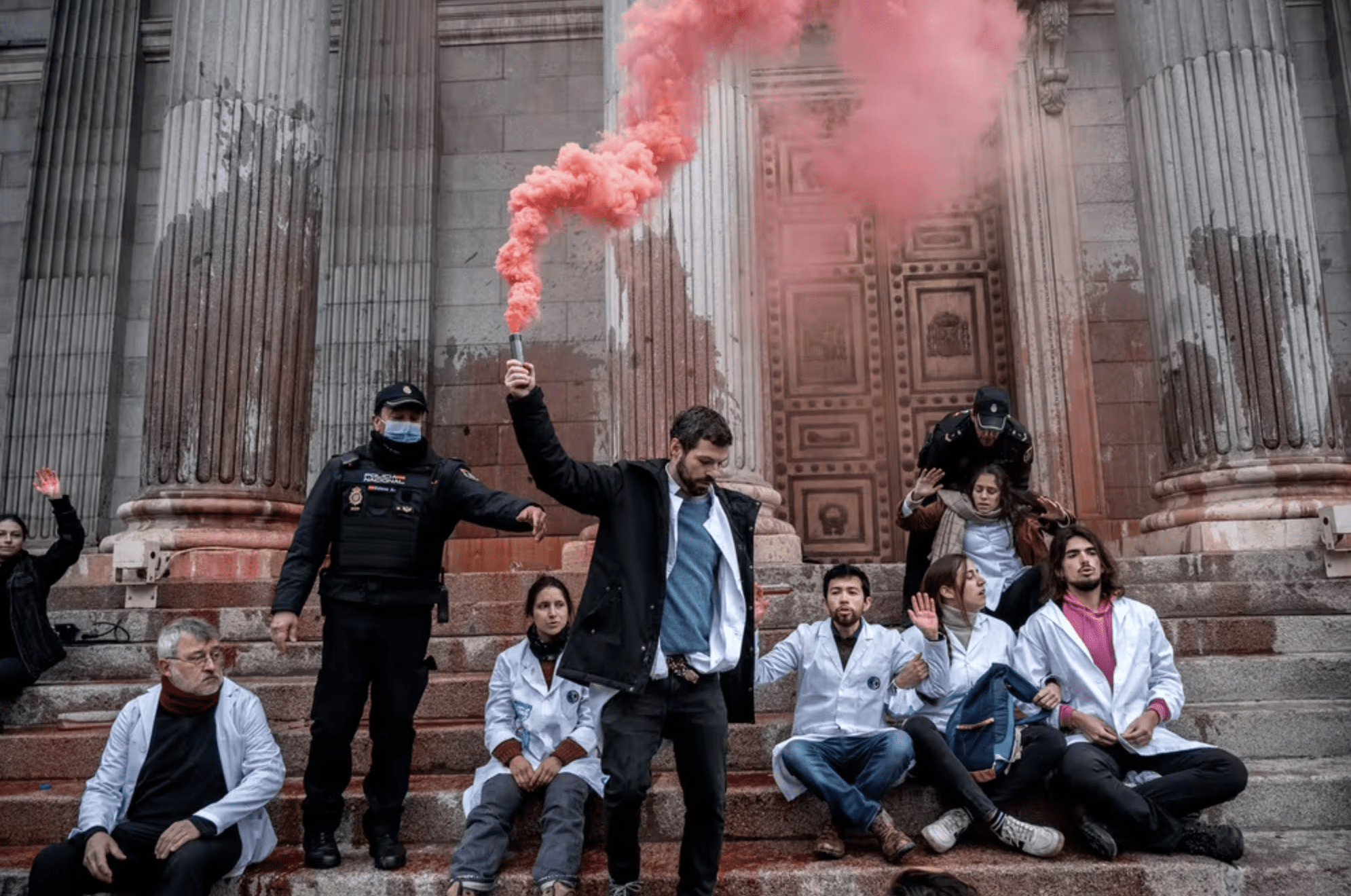We know this to be true; the facts speak for themselves. Yet its current and ongoing impact on the world remains contested. Australians have become familiar with a slew of ‘once in a hundred years’ events within the past few years. However, the government continues to support the coal industry, relies on a ‘sham’ carbon credits system, and the Environment Minister has denied having a responsibility to protect the community from the effects of climate change.
In the face of this denial and inaction, scientists continue to push the facts and bring attention to the situation. The release of the IPCC Sixth Assessment Report in 2021 was an urgent call to action that attracted significant media attention, but has had little impact on the political scale. Despite climate science experts constantly expressing the urgency of these issues, they are often overlooked by politicians and media alike. The report evaluated the extent of action taken to limit global warming to 1.5 degrees, accordingly with the Paris target, and (spoiler alert) found that we’re failing.
On 7 April, in response to the IPCC report, more than 1000 scientists across the globe engaged in acts of civil disobedience in a further attempt to ensure that governments and companies could no longer refuse substantial action. Many scientists chained themselves to doors, blocked bridges and occupied government spaces, to visually challenge the apathy of our decision-makers.
Scientists also took aim at the IPCC, claiming it has used weaker wording as a result of political pressure to avoid creating tension.
The scientists, who took action on multiple continents, rallied under the cry “1.5 is dead, climate revolution now!” Many participants publicly expressed their fear and apprehension for the coming years. Their desperation and terror was expressed not only for their families and future generations, but for humanity. One climate scientist, Peter Kalmus, described the situation as “the eleventh hour in terms of Earth’s breakdown”, and expressed incredulity at how people who understand the situation are still not taking action.
These calls were not only directed to companies, banks, and private groups that profit from the massive oil and gas industry, but were also made directly to federal governments. Activists in Washington DC chained themselves to the White House fence to directly challenge President Biden to declare a climate emergency, which would allow the US to take actions currently not available to them, actions such as ending oil exports and investing more in green energies. Similarly, more than 50 scientists were arrested in Madrid for painting the steps of the Congress of Deputies red.
Despite these actions, very few major newspapers covered the story. The majority of attention was produced by the scientists’ own use of social media and articles that they fought for publication on various news sites (such as this op-ed in The Guardian).
Although smaller, progressive publications have covered the protests and subsequent arrests, larger outlets that could have brought significantly more attention to the situation have failed to cover these incidents meaningfully. Given that such news corporations have reported on similar incidents like the 2021 IPCC Report or student climate strikes, the lack of a single article relating to this incident is disappointing. Many media outlets bow to pressure from political and financial interests that benefit from our inaction on climate change, and whilst there are many examples where media has been used to create attention for this cause, it has failed in this instance.
This lack of support for the actions and sacrifice taken by these scientists simply reinforces their message: we as a global community are failing. We need to heed this call for action and continue to push our governments and communities toward effective and large-scale institutional changes that will allow us to limit our effect on the environment. It is likely too late to stick to the 1.5, as many scientists have said, but we must join their cause and ‘make this crisis impossible to ignore’.





